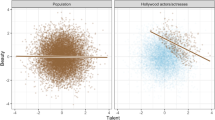Abstract
Background
The Americans with Disability Act (ADA) claim patterns can provide information on sources of potential work discrimination faced by employees with various health problems. This study investigated the pattern of ADA disputes among cancer survivors and non-cancer related impairments.
Materials and methods
Using multivariable logistic regression adjusting for demographics, employees with cancer related claims were compared to employees with other impairment related claims for alleged violations from 2000 to 2005. The impairments were grouped into orthopedic, behavioral, medical, neurologica1, sensory, cancer, cancer comorbid (cancer and non-cancer impairments), and comorbid “other” (non-cancer comorbid disorders). The dispute categories included: termination, reasonable accommodation, relations, terms, hiring, and a nonspecific “other” category.
Results
This study analyzed 59,981 cases over a 6 year period. All comparisons were made in relation to the cancer group. There was a protective effect for any impairment other than cancer (OR = 0.29–0.63, 95% CI = 0.25–0.72) related to discharge from work. Also, orthopedic (OR = 0.81, 95% CI = 0.71–0.93), general medical (OR = 0.82, 95% CI = 0.72–0.94), and neurological (OR = 0.83, 95% CI = 0.71–0.96) impairments were found to be protective for claims related to terms of employment relative to cancer. Cancer survivors who reported a second impairment in addition to cancer were more likely to file disputes that involved relations with others at work (OR = 1.47, 95% CI = 1.16–1.87) in comparison to those with cancer only. Orthopedic (OR = 2.42, 95% CI = 2.13–2.76), neurological (OR = 1.50, 95% CI = 1.30–1.72), and sensory (OR = 1.50, 95% CI = 1.29–1.73) groups were more likely to file accommodation related disputes than the cancer group. Sensory (OR = 4.41, 95% CI = 3.45–5.63), other-comorbid (OR = 2.33, 95% CI = 1.85–2.94), medical (OR = 1.92, 95% CI = 1.51–2.44), and neurological (OR = 1.59, 95% CI = 1.23–2.05) impairment groups filed more disputes related to hiring than the cancer or the cancer-comorbid group.
Conclusion
Cancer survivors are more likely to file job loss claims and differential treatment related to workplace policies. Those with cancer and another impairment file more claims related to relationship problems at work than cancer only. The factors accounting for these claims need to be explored in future research in order to develop more specific evidence based policy and practice.
Implications for cancer survivors
While the percentage of cancer survivors who file claims are relatively small, job termination and terms of employment are more likely to be concerns for cancer survivors than employees with other types of impairments. If a cancer survivor has another health problem as well relationship disputes are likely to emerge.
Similar content being viewed by others
References
SEER. Cancer Statistics Review 1975–2003. Table I–18-U.S. complete prevalence counts, invasive cancers only, January 1, 2003 by age at prevalence. Available at: http://seer.cancer.gov/csr/1975_2003/results_merged/topic_prevalence.pdf.
Hoffman B. Cancer survivors at work: a generation of progress. CA Cancer J Clin. 2005;55:271–80.
Bouknight R, Bradley C, Zhehui L. Correlates of return to work for breast cancer survivors. JCO. 2006;2:345–53.
Schultz P, Beck M, Stava C, Sellin R. Cancer survivors: work related issues. American Association of Occupational Health Nurses. 2002;50:220–26.
ADA. American Disability Act. Job accommodation network: report to congress on the job accommodation (Pub. L. 101–336). Available at: http://wwweeocgov/policy/ada/html. 1990.
Lerner D, Allaire S, Reisine S. Work disability resulting from chronic health conditions. J Occup Environ Med. 2005;47:253–64.
EEOC. Equal employment opportunity commission. A technical assistance manual on the employment provisions (title I) of the Americans with Disabilities Act. Available from EEOC http://wwwjanwvuedu/links/ADAtam1html. 1992.
CFR. Code of Federal Regulation (Section 1630.2). Beltsville, MD: CFR; 1990.
Main D, Nowels C, Cavender T, Etschmaier M, Steiner J. A qualitative study of work and work return in cancer survivors. Psycho Oncol. 2005;4:992–1004.
Huang G, Feuerstein M. Americans with disabilities act litigation and musculoskeletal-related impairments: implications for work re-entry. J Occup Rehabil. 1998;8:91–102.
McKenna M, McMahon B, Fabian E, Hurley J. Workplace discrimination and cancer. Work. 2007, (in press).
Bradley C, Neumark D, Luo Z, Schenk M. Employment and cancer: findings from a longitudinal study of breast and prostate cancer survivors. Cancer Investig. 2007;25:47–54.
Short P, Vasey J, Tunceli K. Employment pathways in a large cohort of adult cancer survivors. Cancer. 2005;103(6):1292–1301.
Acknowledgements
The authors would like to thank Cathy J. Bradley, PhD and Glenn Pransky, MD, MOccH for their thoughtful comments on earlier drafts of this manuscript.
Author information
Authors and Affiliations
Corresponding author
Additional information
The opinions and assertions contained herein are the private views of the authors and are not to be construed as being official or as reflecting the views of the Uniformed Services University of the Health Sciences or the Department of Defense.
Rights and permissions
About this article
Cite this article
Feuerstein, M., Luff, G.M., Harrington, C.B. et al. Pattern of workplace disputes in cancer survivors: a population study of ADA claims. J Cancer Surviv 1, 185–192 (2007). https://doi.org/10.1007/s11764-007-0027-9
Published:
Issue Date:
DOI: https://doi.org/10.1007/s11764-007-0027-9




